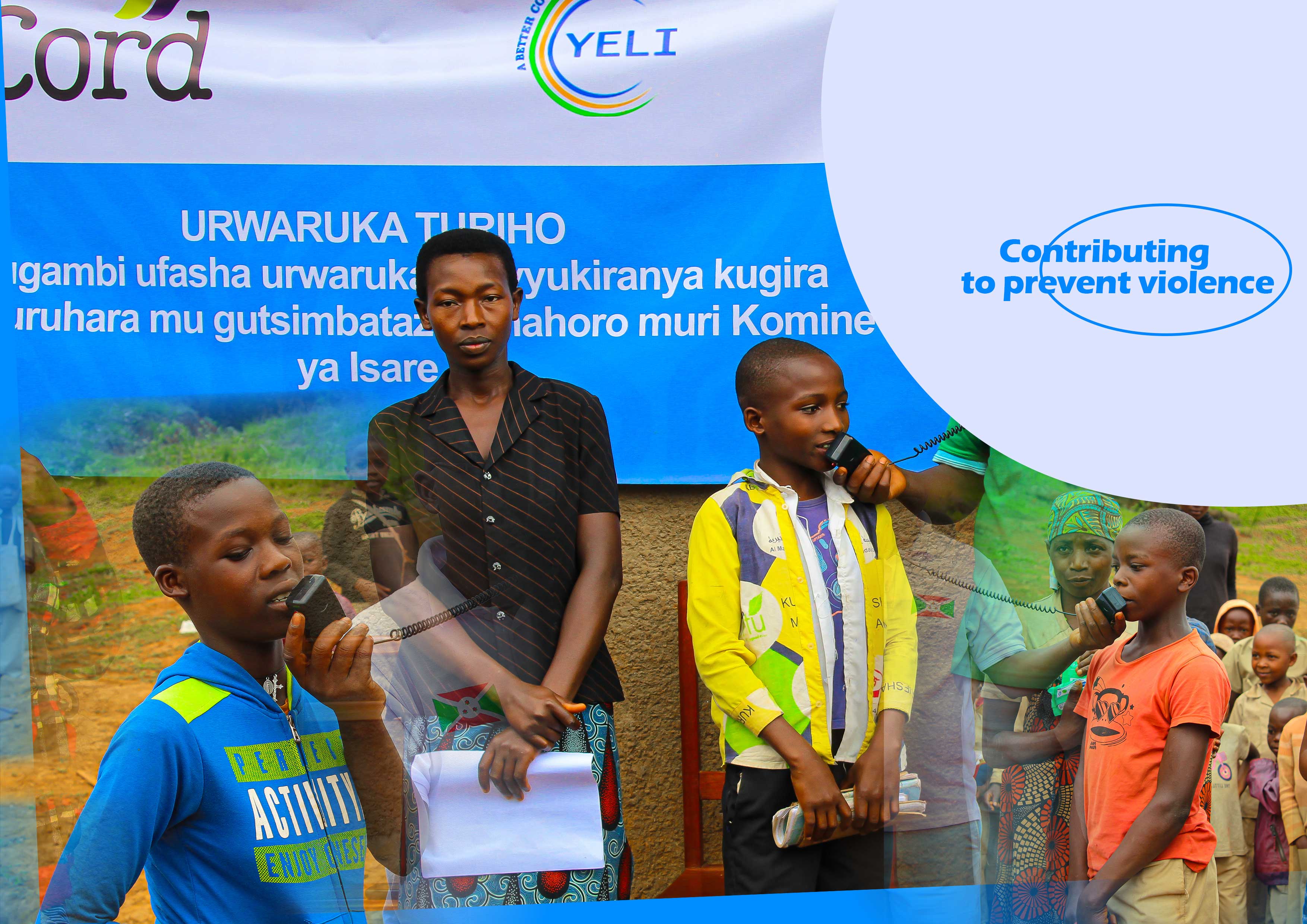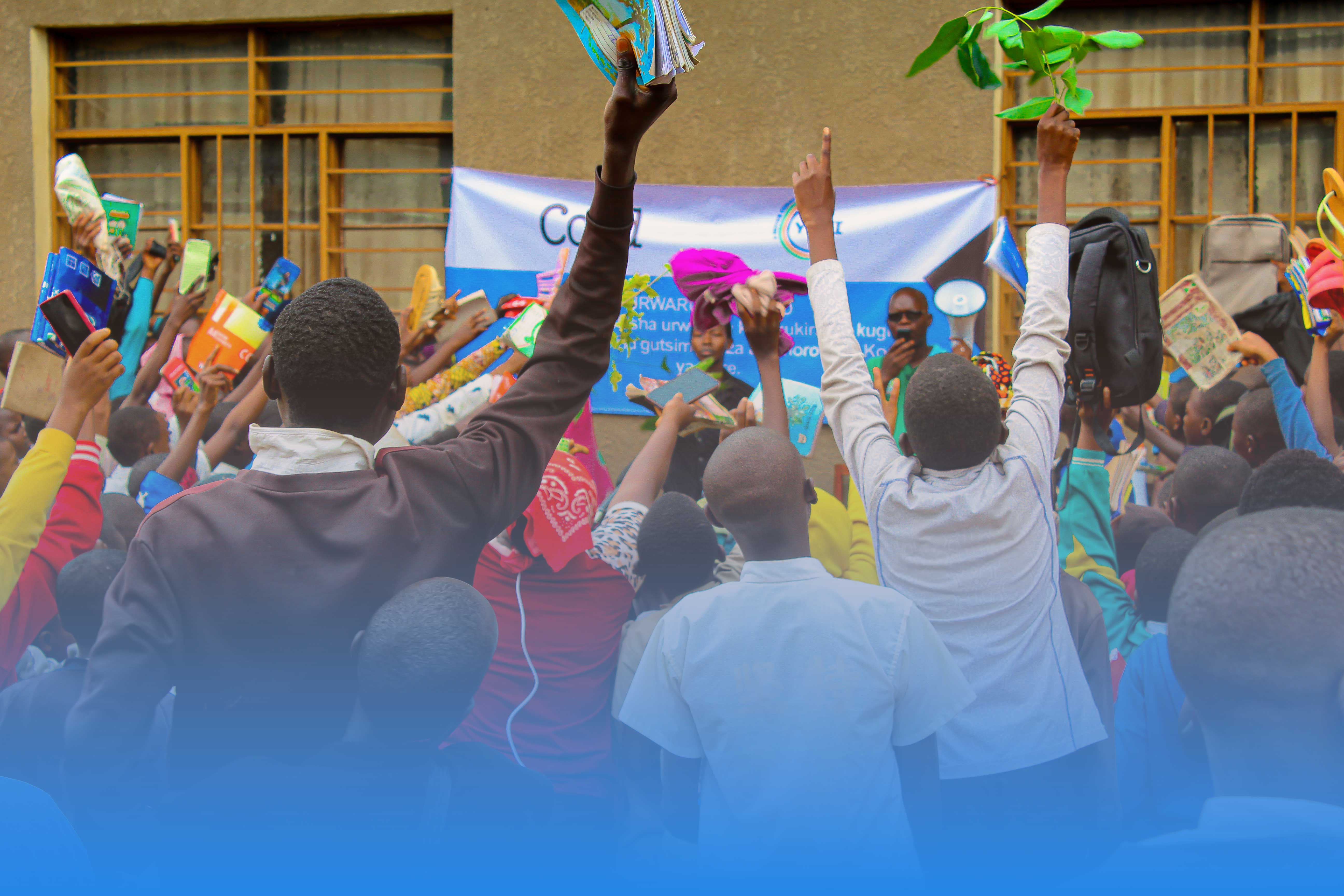
young people in Isare are contributing to prevent violence as we are nearing elections in 2025.
07 April 202521k Views

In the era of valuing organizational performance, in the era of promoting the results-based management system and the theory of change, in the era of competition between civil society organizations to mobilize funding from various technical and financial partners, no organization worthy of the name can do without the planning process, which alone makes it possible to develop appropriate strategies to move towards a clear future through equally clear paths. This strategic plan is therefore part of this logic. It was commissioned to enable the YELI association to equip itself with a strategic direction in order to prepare for the next five years.
Regarding YELI, Youth Empowerment and Leadership Initiative, it was founded in 2014, but it was approved and registered with the Ministry of Interior and Patriotic Training as a non-profit organization in February 2015. During its existence, YELI has already experienced three major periods: the founding period, the period of network activation and internal development and the period of growth and major achievements on the ground. Its vision is: A Burundian society where young people are artisans of peace, the promotion of human rights and sustainable development. As for its mission, it is to develop generations of young leaders and entrepreneurs capable of promoting peace, human rights and sustainable development. Regarding values, YELI is based on the following values: Integrity, Excellence, Inclusiveness , Efficiency and Transparency.
To implement this strategic plan, the preferred methodological approach was based on three successive and complementary data collection, analysis and interpretation techniques. These techniques are: Semi-Directive Interview, Review and Documentary Examination of Available Sources and the Strategic Planning Workshop.
Concretely, this YELI Strategic Plan 2022-2026 is designed to solve 4 major problems below: (1) Existence of financial and organizational gaps that prevent YELI from acting with the maximum forces necessary to achieve all the desired results; (2) Low participation of young boys, men, girls and women living in the YELI intervention communes in the implementation of significant peacebuilding initiatives, security and the promotion of the socio-economic rights of young girls who are victims of gender-based violence, rural exodus, trafficking and human trafficking at the community level; (3) young girls, women, boys and men in the YELI intervention municipalities are not sufficiently recognized by the municipal authorities and local leaders as major actors in the promotion of sustainable development and (4) young girls , women, boys and men in the YELI intervention municipalities do not know how to effectively prevent themselves from HIV/AIDS and do not properly enjoy their rights to Sexual and Reproductive Health.
Based on these 4 aforementioned problems, 4 axes and 4 effects were identified as shown in the table below.
|
Axis 1: Organizational development |
Effect 1: YELI has become a stable, effective, efficient and influential organization at the national, regional and international levels. |
|
Axis 2: Consolidation of peace and security and promotion of human rights |
Effect 2: In the 17 municipalities where YELI operates, young girls, women, boys and men, as well as adolescents, are fully supported by authorities and influencers of local and national policies and programs; and they have increased by 30% the number of initiatives they implement to consolidate peace, security and promote the socio-economic rights of young victims of gender-based violence, rural exodus, trafficking and human trafficking ; in addition, there has been a 30% reduction in cases of child neglect and exploitation. |
|
Axis 3: Leadership, Entrepreneurship and Promotion of the Environment |
Effect 3: In the 17 municipalities where YELI operates, young girls, women, boys and men are recognized by municipal authorities and local leaders as major players in the promotion of sustainable development thanks to the increase in their capacities to implement leadership, entrepreneurship and environmental protection initiatives, the growth rate of which is around 30%. |
|
Axis 4: AIDS and Sexual and Reproductive Health (SRH) |
Outcome 4: At least 8,500 young girls, women, boys and men know how to effectively prevent HIV/AIDS, enjoy their rights to Sexual and Reproductive Health, and actively participate in raising awareness among other young people in need. |